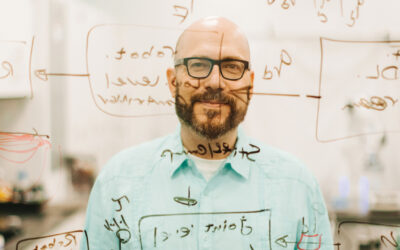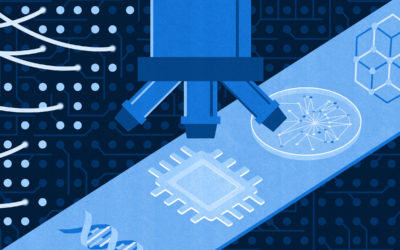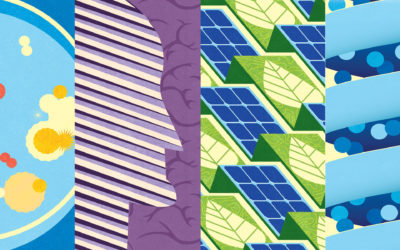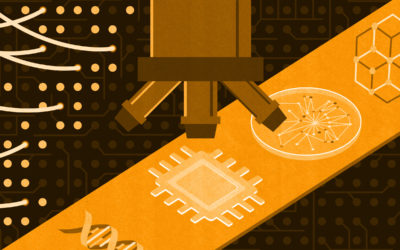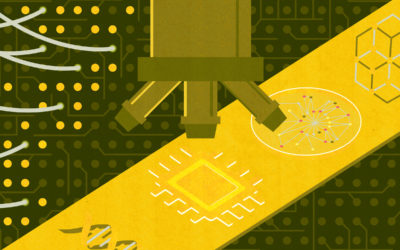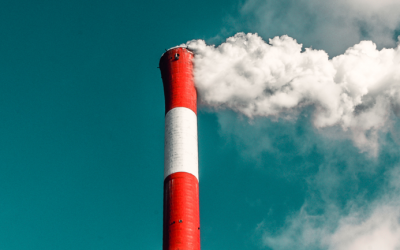Accelerated Decarbonization
Can we restore the carbon balance through bold ideas?
The Accelerated Decarbonization program seeks to explore new ideas for global decarbonization through advances in fundamental science. United through a common goal of restoring the carbon balance, the program’s interdisciplinary research drives the discovery of new science that can solve pressing climate-related problems. Embracing an unbiased stance towards technology, program members are empowered to boldly pursue innovative research ideas that lead towards a carbon-balanced future.
IMPACT CLUSTERS
The Accelerated Decarbonization program is part of the following CIFAR Impact Clusters: Exploring Emerging Technologies and Nurturing a Resilient Earth. CIFAR’s research programs are organized into 5 distinct Impact Clusters that address significant global issues and are committed to fostering an environment in which breakthroughs emerge.
RESEARCH AND SOCIETAL IMPACT HIGHLIGHTS
Combining carbon capture and conversion
Through a Catalyst Fund project, program Co-Director Curtis Berlinguette (University of British Columbia) and Fellow Christopher Chang’s (University of California, Berkeley) research groups have mimicked the combined CO2 capture and conversion capabilities of bacterial organelles in the natural world by combining expertise in molecular chemistry, materials science and engineering. Synthetic bacterial proteins are used to convert CO2 into bicarbonate-rich solutions. Next, more useful chemicals are produced by applying electrolyzer devices to these solutions to reduce CO2.
Converting CO2 into less harmful, more useful chemicals
Work in CIFAR Azrieli Global Scholar Chibueze Amanchukwu’s (University of Chicago) lab focuses on understanding the influence of electrolytes on CO2 conversion and uses organic solvents (not water) as the electrolyte. The group was the first to create valuable carbon products from CO2 while using alkali cations in organic solvents, a breakthrough that has major implications for the future of carbon conversion.
Selected papers:
B.C. Kash, R.J. Gomes, and C.V. Amanchukwu. Mitigating Electrode Inactivation during CO2 Electrocatalysis in Aprotic Solvents with Alkali Cations. J. Phys. Chem. Lett. 2023, 14, 4, 920–926. January 20, 2023
A. Aspuru-Guzik. The decade of artificial intelligence in chemistry and materials. Digital Discovery, 2023, 2, 10-11 January 19, 2023.
A. Karbelkar, R. Ahlmark, X Zhou, K Austin, G Fan, V. Y. Yang, and A. Furst. Carbon Electrode-Based Biosensing Enabled by Biocompatible Surface Modification with DNA and Proteins. Bioconjugate Chem. 2023, 34, 2, 358–365. January 12, 2023
A.H. Proppe, Y.C. Li, A. Aspuru-Guzik, C.P. Berlinguette, C.J. Chang, R. Cogdell, A.G. Doyle, J. Flick, N. Gabor, R van Grondelle, S. Hammes-Schiffer, S.A. Jaffer, S.O. Kelly, M. Leclerc, K. Leo, T.E. Mallouk, P. Narang, G.S. Schlau-Cohen, G.S. Scholes. A. Vojvodic, V. W-W. Yam, J.Y. Yang, E.H. Sargent. Bioinspiration in Light Harvesting and Catalysis. Nat. Rev. Mater. 2020, 5, 828-846. DOI: 10.1038/s41578-020-0222-0
Founded
2014
Renewal Dates
2020
Supporters
Chisholm Thomson Family Foundation, The George Cedric Metcalf Charitable Foundation, Gerald Heffernan, McLean Group, RBC Foundation, Trottier Family Foundation
Interdisciplinary Collaboration
Chemistry
Materials Science
Biophysics
Physics
Engineering
Biology
Data Science
Biochemistry
Machine Learning
Robotics
CIFAR Contact





















